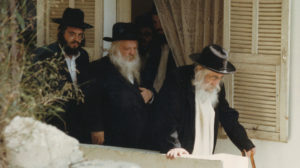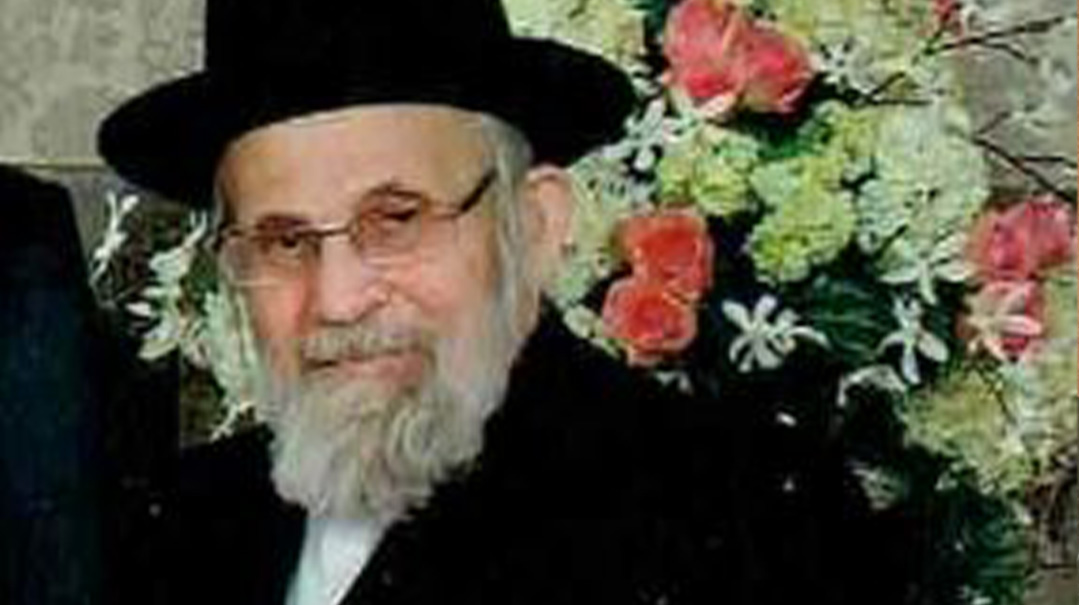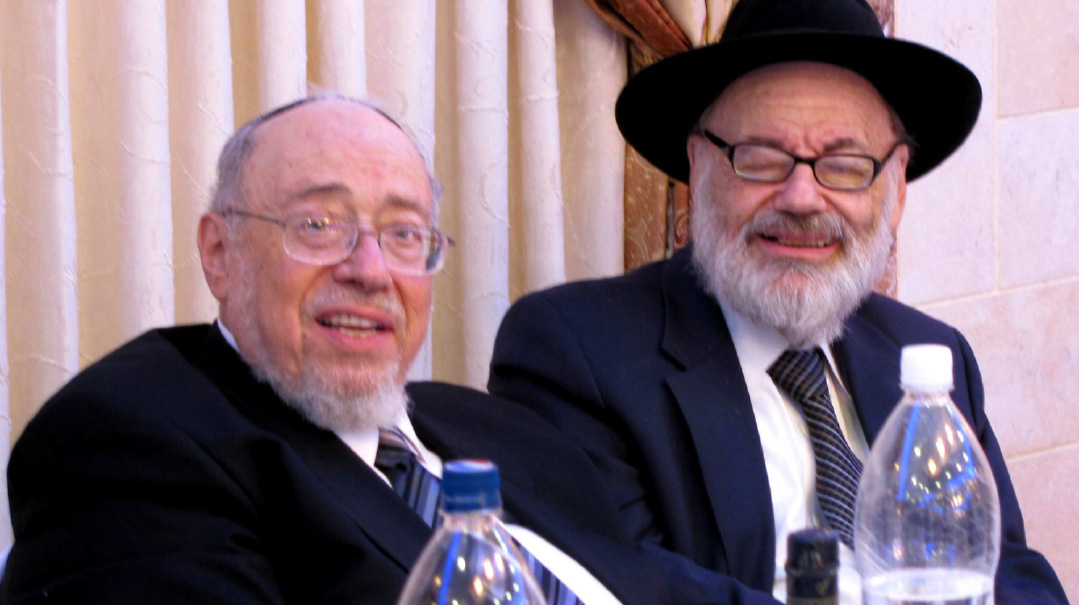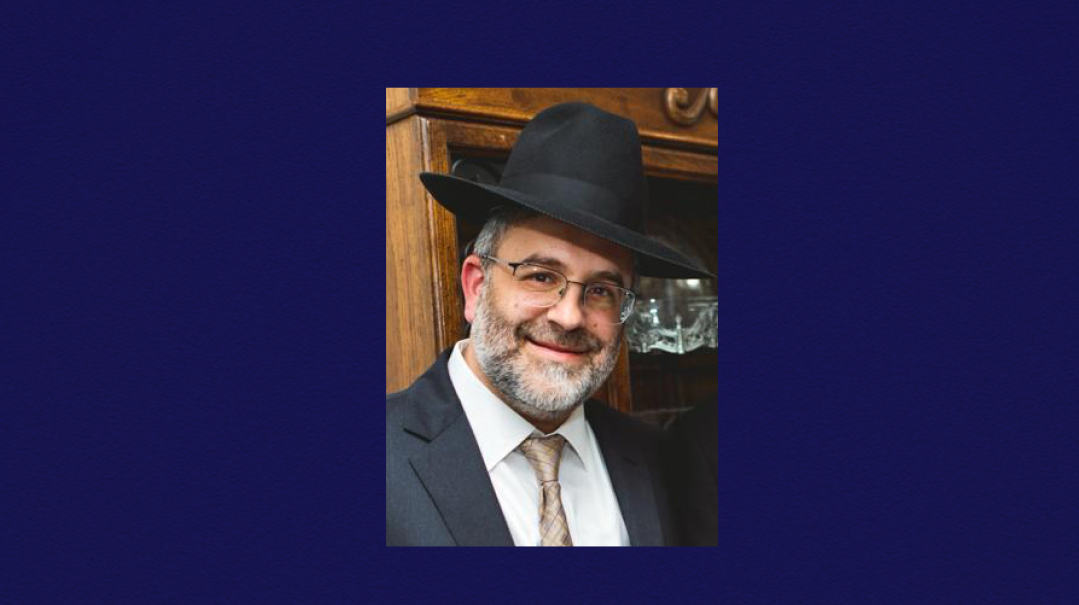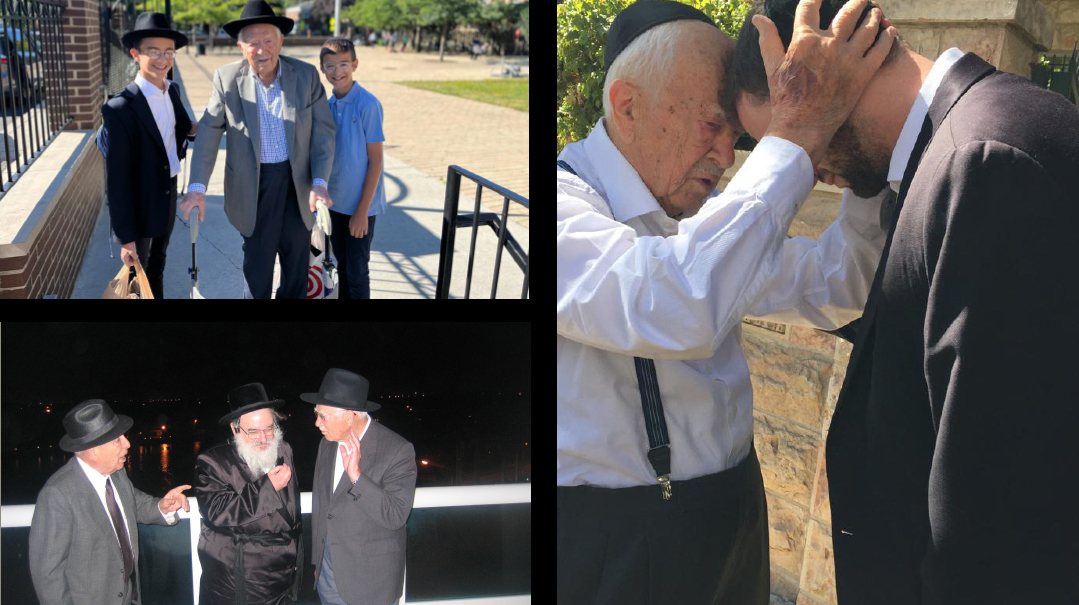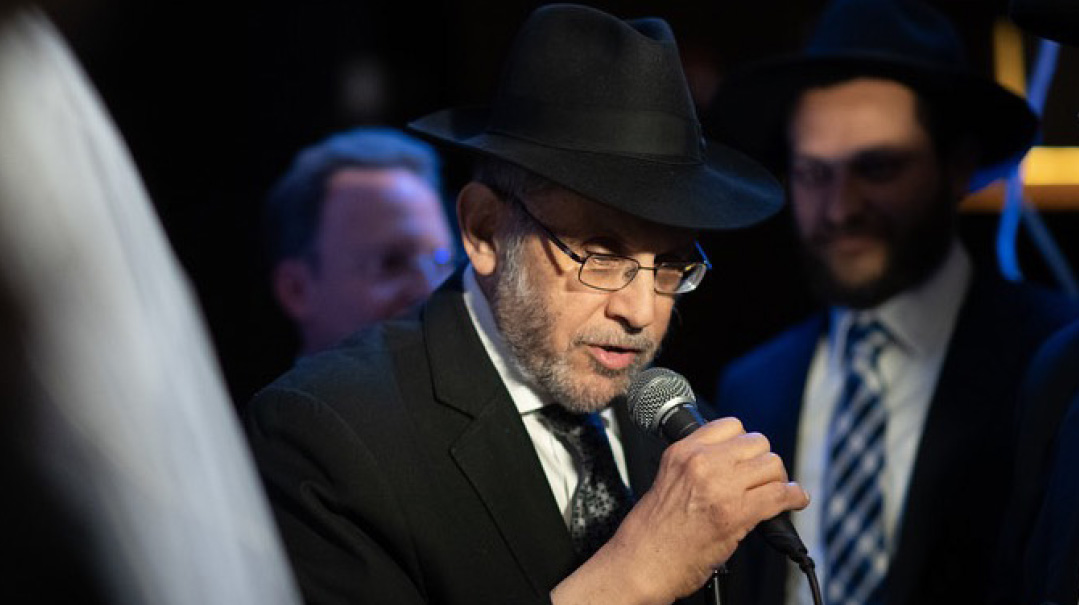No Greater Kavod
| April 1, 2020A year after the Skulener Rebbe's passing, his sweet song still resounds
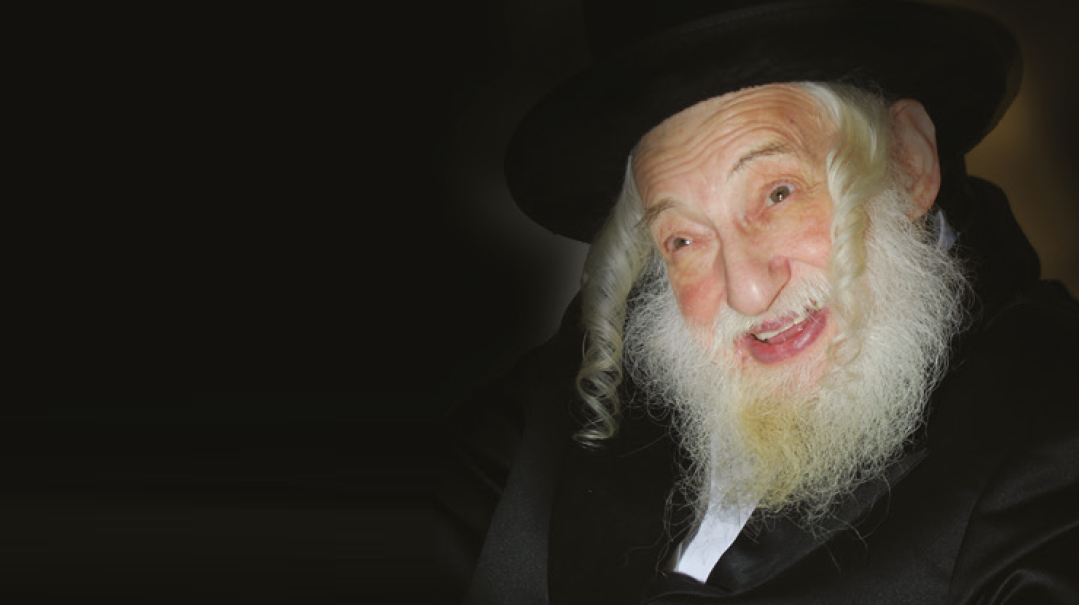
It’s been a year since the petirah of the Skulener Rebbe, Rav Yisrael Avraham Portugal ztz”l, considered the zkan haAdmorim — the last rebbe of a bygone era. For 95 turbulent years, including early years of torture and oppression, the Rebbe pushed himself beyond all physical limits in his own avodah and in his tireless devotion to Yidden everywhere. Together with his holy father, Rav Eliezer Zusia Portugal zy”a, the Rebbe suffered torture and imprisonment by the Romanian Communist regime, and after his father’s passing, continued to lead the lighthouse of Torah, chassidus, and chesed they’d created in Brooklyn.
Before World War II, Rav Eliezer Zusia, the previous Rebbe (1898–1982), focused his energy on increasing the spiritual level of the simple folk of the towns around him, and during and after the war, he became the father of hundreds of war orphans, smuggling his “family” into Bucharest, Romania, and eventually sending them off to Eretz Yisrael. For over a decade, he was the address for all religious needs under the Communist regime, for which he and his son were often tortured — and imprisoned several times for many months on charges of smuggling children to Eretz Yisrael and spying for the US and Israel. Despite the danger, Rav Eliezer Zusia and his son remained in Romania to help fellow Jews until 1960.
Once their own emigration was secured due to the intervention of rabbanim, askanim, and the US State Department, father and son immigrated to the US, initially residing in Crown Heights. There the Rebbe set to work founding the Chesed L’Avraham organization to provide relief to the Yidden who remained in Romania, which later segued into a network of schools in Eretz Yisrael to keep immigrant children in a Torah framework, and which continues until today. Those who merited to be in his presence were astonished by the length and intensity of his davening and the beauty and depth of the tunes he composed, many of which have become internationally famous today. He eventually moved to Williamsburg, where he passed away in 1982. His son, Rebbe Yisrael Avraham, who embodied his father’s passion and devotion and was additionally a baal menagen in his own right, divided his time between Boro Park and Williamsburg.
Despite physical hardship, which he seemed to transcend, Rebbe Yisrael Avraham radiated the pure joy and simchah that comes with being truly connected to holiness. During the 36 years of his leadership, he was revered for his kedushah and his dedication to the myriad Yidden who came for his hadrachah, brachos, and to be inspired by his avodas Hashem. At tishen, the Rebbe beamed, smiling upon all with genuine ahavas Yisrael, an intense love coupled with a desire for the fulfillment of their spiritual greatness. And throughout the bitter years and the sweet ones, he composed his niggunim (“Oy Yoy Yoy Shabbos,” and hundreds of others), the songs of Skulen, which reach out to the hearts of Jews everywhere, letting listeners touch a tangible outpouring of the Rebbe’s pure soul. But although the Rebbe was a lofty soul and miracle tales abound, in speaking to the Rebbe’s gabbaim, grandchildren, and followers, and listening to the stories of his more mundane activities, it seems, perhaps, that therein lay the greatest wonders.
*****
The Best Deal
I was once in the car with the Rebbe, when he turned to me and said, “The measurement of ahavas Hashem is ahavas Yisrael. Far deveikisn, ken zich yeder einer [Anyone can have moments of feeling a strong connection to Hashem]. But the real measurement is what you would do to help another Yid.”
Late one Thursday night, I was closing up the Rebbe’s house before going home, when a person came to the door, asking to see the Rebbe. I suggested he return on Sunday, but he said it was an urgent matter, so he went in to the Rebbe’s room. I continued locking up the doors and windows, and soon I saw that the Rebbe had left his room and gone into another room, which meant that he had gone to get money. Later when I reentered the Rebbe’s room, I saw that the Yid had left. The Rebbe was sitting there, singing a niggun for “Kol zera Yaakov yechabduhu, kidvar haMelech vedaso,” with tears of joy streaming down his face. I asked him what had happened, and he told me, “A Yid was here who had absolutely nothing to make Shabbos with… the Tatteh (everything was always about his father, the previous Rebbe, because the Rebbe never spoke about himself, ever) was always so happy when he could make a Yid happy….”
Another time, a Yid weighed down with sorrow came in to see the Rebbe. He was a father of 12 children and unemployed, and in addition, his marriage had deteriorated and almost unraveled because of the financial stress. It was late afternoon when he left the Rebbe’s room, and then the Rebbe called me in and asked me to contact a certain businessman so he could ask him to give this person a job. It was getting late for Minchah, so I suggested that we do it after Minchah, but the Rebbe said it couldn’t wait.
I made the call and the Rebbe made his request. The man, however, objected strenuously. “Rebbe, I have a business to run, I can’t just hire anyone.”
“If you take in this Yid, I’ll give you a brachah and your business will grow,” the Rebbe rejoined.
It wasn’t easy. After a very long conversation, and much cajoling on the Rebbe’s part, the businessman finally agreed to employ this man. The Rebbe’s face was shining. He called back the unemployed Yid, and I was asked to lock the door while the Rebbe spoke to him to finalize the arrangements of his new job. And when it was all sorted out, the Rebbe looked like someone who had just made the best deal of his career.
—RABBI AVRAHAM YITZCHAK BLUM, gabbai
Never Give Up
The Rebbe made a point of spending time with bochurim who were struggling. He gave them hours of his valuable time, listening to their problems and offering guidance and advice. He contacted roshei yeshivah to advocate for the most difficult cases, often managing to turn things around and help stabilize a young man’s path, and always keeping a watchful eye on his progress. There was a bochur from Brooklyn who’d been thrown out of several institutions, and although a suitable yeshivah had been found to accept him, the parents had no money for the tuition. The Rebbe took personal responsibility, sponsoring the tuition in full. He even sent me to bring the funds over. Baruch Hashem, this bochur turned into a fine, productive yungerman.
Forty-five years ago, the Chesed L’Avraham tzedakah organization used to make successful appeals in the bungalow colonies during the summer. That was during the time of the previous Rebbe, but with time, the older ones who had a strong kesher with the alter Rebbe were gone, and the second-generation ties were less strong. I would travel to the country in the early hours, and one morning, I overslept. It was around 6 a.m. when I saw the face of the alter Rebbe in a dream, and he said “Why are you sleeping? You have things to do for Chesed L’Avraham!” I quickly got dressed and ran out to the car. Later in the week, when I saw the Rebbe, I told him the story — but he wasn’t surprised at all. He said, “Do you know how many times I see der Tatteh at my side to make sure I continue with the work he began?” Later, at a public gathering, the Rebbe mentioned this story that had happened to me, and added “Der Tatteh shteit eim tzu der hendt. [My father is holding Reb Anshel’s hands.]”
—RABBI ANSHEL BABAD, fundraiser for Chesed L’Avraham, the Skulener Rebbe’s tzedakah fund
How Can You Sleep?
In later years, a family member would often spend the night with the Rebbe, and as a bochur, I was with him one Shabbos. The tish finished at about 3 a.m., and then the Rebbe came back to the house, and sat down to learn Chumash with Ohr Hachaim Hakadosh. He learned as if he were thirsty, reading the words aloud in quick spurts.
I was sitting on the couch, exhausted, but I was supposed to make sure the Rebbe also got some rest. I said something to my zeide about having to get up early Shabbos morning, but he wasn’t up to that yet. “I’m just in the middle of a shtickel here,” he said. I waited, then asked again. “I’m just in the middle of another shtickel, please, let’s finish just this piece,” he said again.
An hour before sunrise, I told the Rebbe that if we did not go to sleep, it would soon be time to say Krias Shema. The Rebbe said, “Ah, very good, it would be a pity to go sleep if we could say Krias Shema.” When dawn broke, he washed his hands and said Krias Shema.
Then, I again tried to suggest that it might be time to sleep. “They’ll take away my job here,” I pleaded, half in jest. The Rebbe gave me a look. “You want to go to sleep? Right now, the Rosh Yeshivah (Rav Stern, of Yeshivas Toras Chesed in London, who was critically ill at the time) is lying in the hospital in pain,” he said, and continued to list another 30 full names of patients. “They are trembling from yissurim and we’re going to cover ourselves with blankets in bed?!” My zeide pointed me toward two Tehillims. Together, we said many perakim, aloud, slowly, pasuk by pasuk, together with the names of cholim and pleas for their refuah. It was after 7 a.m. when the Rebbe was ready for rest. I got up a half hour later to check on him, but he was already back at his shtender.”
—Rabbi URI KLUGHAUPT, grandson
Money Goes
The Rebbe was extremely careful when it came to handling money, writing down every penny that passed through his hands. Around three years before the Rebbe’s petirah, we made a reception to raise funds for the Rebbe’s kimcha d’Pischa fund. The Rebbe attended, and before leaving, he called my wife in to thank her personally for hosting. That Erev Shabbos, I received a phone call from the Rebbe’s son. The Rebbe had found a check in his pocket that was signed by a person who had attended the function, and he assumed was a kimcha d’Pischa donation and wanted to return it to me. What had actually happened was that a donor had come to the reception with two checks: one for the fund, and one for the Rebbe.
The kvittel gelt — money traditionally given to a Rebbe by individuals asking for his prayers and blessings — that the Skulener Rebbe received went straight to his tzedakah funds, not his personal needs. Sometimes, though, petitioners would give separate monies to support the Rebbe and his family. Once, someone gave the Rebbe a large donation, and stipulated aloud that it was to be used for the Rebbe’s own needs. As he left, the Rebbe took $8,000 from it, and called someone to deliver it to a cause. “But, Tatteh, he made a condition that it is for the Rebbe’s needs!” said his son.
The Rebbe was quick to respond. “And do you know what my true needs are?”
—RABBI MOISHE MEIR KALISCH, menahel, Yeshivas Meor Hachaim
Out of Pocket
I was a little eight-year-old, hanging back shyly as my parents and family visited the Rebbe. The Rebbe called me over. “The Toyreh is sweet like chocolate,” he told me. (In retrospect, I wonder if the Rebbe, who barely ate, ever tasted chocolate.)
Another time, I was in the corner of the room, and I had my hands in my pockets. The Rebbe, like many chassidim and gedolim, was particular that hands should not be in the pants’ pockets, and so he called me over and gently told me to take them out. As I did so, he turned the implied admonition into a cherished moment by giving me a special mission. “If you see anyone with their hands in their pockets, go tell them that you are a messenger from the Skulener Rebbe to tell them to take their hands out.”
—M.B. Goldstein
Why All the Kavod?
I was a chassid and attendant of the alter Rebbe, and when his son became the Skulener Rebbe, he tried to tell the gabbaim they could leave and go to other rebbes. He wanted no kavod and couldn’t even understand kavod. I stayed. A few months later, the Rebbe attended a parlor meeting for Chesed L’Avraham, and I assisted him in putting on his coat as we left. When we came back to the Rebbe’s home, the Rebbe came indoors and I took off his coat. He said “Shmiel, vus machstu naarish? [Why are you making yourself silly?] Meileh, when fundraising for the mosdos, you have to play rebbe and gabbai, you take off my coat and put on my coat, but when no one sees?”
People constantly called the Rebbe for his prayers to help a difficult childbirth. He would always say “In the zechus of my parents, who raised so many Yiddishe children…” He never even considered his own merits. Everything was about his parents.
When the room was crowded with petitioners waiting to speak to the Rebbe, he had a soft spot for Yerushalmi Yidden, often allowing them in first. I asked the Rebbe why. He said to me “In Romania, if a Yid from Yerushalayim was in town, we children used to crowd at the windows to watch him go by. Today we don’t appreciate these special Jews.”
The Rebbe was extremely caring and compassionate. A father once came to him worn down with debt and worry. He had two children engaged and could not afford to pay for the weddings. The Rebbe gave him a large sum of money, but it wasn’t just a quick handout. He also showed him respect as a person. He inquired about the mechutanim and their families and discussed when and where each wedding would be held, making sure that the man felt that it was a double simchah, not just a double financial burden, and that the Rebbe shared his simchah.
The gabbaim would sometimes knock on the Rebbe’s door if he was taking a long time to speak to someone and there was a big crowd waiting. At one point, a couple came to the Rebbe to talk about a child’s illness. The Rebbe asked me to stay in the room as they did not speak Yiddish well. The Rebbe went through the situation with them in great detail, asking questions, giving chizuk and encouragement, taking some of the burden off their shoulders by sharing it. When he finished, after about an hour and a half, he said to me “Nu, Shmiel, could I have done that any quicker?”
—REB SHMIEL STEFANSKY, director of Skulen’s tzedakah fund Chasdei Eliezer
How Others Feel
When we opened a Skulener shtibel in Lakewood, the Rebbe’s son (the current Rebbe in Lakewood) came for Shabbos every four to six weeks. I arranged a place for him to stay with a certain family in the community, but one time I placed him elsewhere. The next time I was in Boro Park speaking to the Rebbe, the Rebbe asked me if I had asked the original host before changing his son’s accommodations. “You can’t just switch an achsanya without permission. Once I was asked to stay in the home of a certain donor but it wasn’t my regular place. I gave up a huge financial gain to Chesed L’Avraham rather than move my lodgings,” he said.
The Rebbe was always worried about the feelings of individuals. Once, the Rebbe called me on the phone a few minutes before Shabbos. He wanted to tell me that a certain person was coming to the shtibel in Lakewood for Shabbos and I should be mechabed him and invite him to speak. When I met him, it turned out that the person was slightly eccentric. The Rebbe had obviously been especially concerned for him, and had made sure we would treat him with special honor.
Even when he wasn’t asked, he would try to help people. Someone came to the Rebbe for a brachah for a particular shidduch for his daughter. The Rebbe called me in Lakewood to find out information about the suggested bochur, and personally made thorough inquiries about the bochur’s learning and personality. He said that he couldn’t give a brachah for the shidduch without checking it out.
—REB BINYOMIN SPEAR
All in the Family
My husband was an orphan from Romania who was adopted by the Rebbe’s father and was very close to the entire family. After he passed away at a young age, I continued to raise my children alone. Right before the marriage of one of my sons, I went to the Rebbe for his brachah. The wedding was scheduled to take place in Eretz Yisrael right after Purim. The Rebbe told me that he didn’t feel that he could attend the chasunah in person, but he would be there in spirit. I replied that I understood, that the Rebbe shouldn’t come — Purim was a strenuous Yom Tov, and the Rebbe was not strong physically.
We arrived in Eretz Yisrael, and the day before the chasunah, when I went to the airport to pick up my parents, there was the Rebbe, walking through the arrivals gate.
He saw my surprise and said to me “Vi zoi ken ich zein in der heim ven mein brider’s yusem hot chasunah? [How could I remain at home when my brother’s orphan is getting married?]” The Rebbe had made the entire trip for us and participated in the simchah fully for three days before returning to New York.
Postscript to this story: The Skulener Rebbetzin told a grandchild that when she asked her husband if it had been worth making this trip, which had been so exhausting and at such a busy time of year, the Rebbe replied that it certainly had, since he had been able to meet his late father and give him an update on his Chesed L’Avraham fund.
—Mrs. W.
I’ll Survive
Back in Romania, Jewish students used to come and spend Shabbos with the previous Rebbe. A guard was stationed at the front door with the job of warning them of police raids. Once, when a raid occurred, the students quickly left the Rebbe’s house via the back door, but when the Communist police came in, they saw a large table set for Shabbos and arrested the Rebbe’s son, Rav Yisrael Avraham. On Motzaei Shabbos they came back and took the Rebbe to their headquarters too — where he saw his son hanging upside down, being beaten by the police officers. They were trying to get him to reveal the names of the students. When he saw his father enter, he said “Tatteh, don’t say anything, don’t worry, I will manage.”
—Heard by RABBI ARON DUVID MENDLOWITZ from the previous Rebbe, Rav Eliezer Zusia Portugal
Better to Break It
“When one of my sons was born, I went to the Rebbe and asked him to serve as sandek at the bris. The Rebbe first suggested I give the honor to my father-in-law or grandfather. When I repeated that this was what my wife and I both wanted, that it would be an honor for us and our families if the Rebbe agreed to do this, he thanked me but declined, explaining that he was makpid not to be sandek for a family who owned a television. I thought about that for a few minutes, then I looked at the Rebbe’s pure face, and said “I’ll give up the television.”
I thought the Rebbe would be so pleased. I knew of someone who had offered a huge sum of money for the Rebbe’s tzedakahs, but the Rebbe had refused to accept it since he had a television. But the Rebbe didn’t want me to make such a spur-of-the-moment decision on my own. He told me to go home and discuss it with my wife. To her tremendous credit, my wife agreed that it was worth giving up our TV for the special privilege of the Rebbe being our son’s sandek. I went back to the Rebbe and told him what we had decided. He was so happy, but then asked, “But what are you going to do with the TV?” I told him I’d give it to one of my non-Jewish workers. That was not good enough for the Rebbe. “If you give it to someone else, you will still benefit from the gift. It would be better if you take a hammer and break it….” And so I did.
—A.S.
The Horrors He Went Through
During the year 5760 (2000), the Skulener Rebbetzin a”h once told me in conversation, “Ich hob chasunah gehat mit mein heiliger man in Tuf Shin Yud [I married my heilige husband in 1950] and until today, 50 years later, I do not know what he went through in jail. When he speaks about the time his father, the Rebbe, was in jail, occasionally I understand something about himself too. But if he realizes that he is revealing something about himself, he stops mid-sentence.”
Back in 1972, the Rebbe was homebound for several weeks with cellulitis. His father, the Rebbe at the time, was still living in Crown Heights. He came to visit his son in Boro Park, and then my father, Reb Dovid a’’h, offered to drive him home. When they arrived, my father got out of the car to escort the previous Rebbe, who would not leave my father outside, but invited him to come in and sit down. Then the Rebbe turned to him and began to converse about his son. He said, “I want to tell you who my Reb Srulik’l is. Once, in the prison in Romania, they wanted him to inform on other people. They threatened to jam his fingers in a metal door, but Srulik’l said nothing. They then took him and jammed his fingers, not once, not twice, not three times. My son still did not let out one word, one name. That’s who my Srulik’l is.”
—REB LEVI YITZCHAK SILBER
Every Minute Torah
The Rebbe used every minute to learn. When we traveled to Skulen to daven at the kevarim of the Rebbe’s ancestors, we drove on a coach bus from Skulen to Bohush through the night. Every time I woke up, I saw the Rebbe awake, learning from a sefer.
One time I drove the Rebbe and as he got into the car, he asked me, “Where is the sefer?” I said “We’re just going around the block.” He said to me, “If you go around the block you don’t need to learn? Zug a vort. [So say a devar Torah.]”
—RABBI MOISHE MEIR KALISCH, menahel, Yeshivas Meor Hachaim
Sharing the Pain
Some years ago, we had a child born with a physical defect. No one knew about it yet, but we needed some comfort, so I went in and mentioned it to the Rebbe. “Don’t worry,” the Rebbe said to me. “I’ll come over quietly and no one will know.” The Rebbe came to our home, sat together with my wife and me, and we spoke it over for some hours. He listened to our pain and worries and offered us medical advice and general guidance. For years, through many ups and downs, the Rebbe provided us with moral support, until our child was in shidduchim. At one point, my child was around ten and had to have surgery. He was old enough to be a little scared. The Rebbe asked me to bring him, then asked him if he says zemiros on Motzaei Shabbos. He sat with him and translated the zemiros with the refrain “Al tirh avdi Yaakov [Do not fear, my servant Yaakov],” explaining, on a child’s level, how we need to have bitachon and not be afraid. The Rebbe told him to say it every Motzaei Shabbos.
—N.S., a Skulener chassid
(Originally featured in Mishpacha, Issue 805)
Oops! We could not locate your form.




